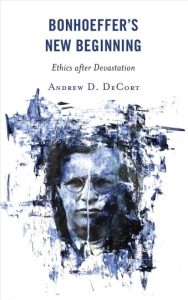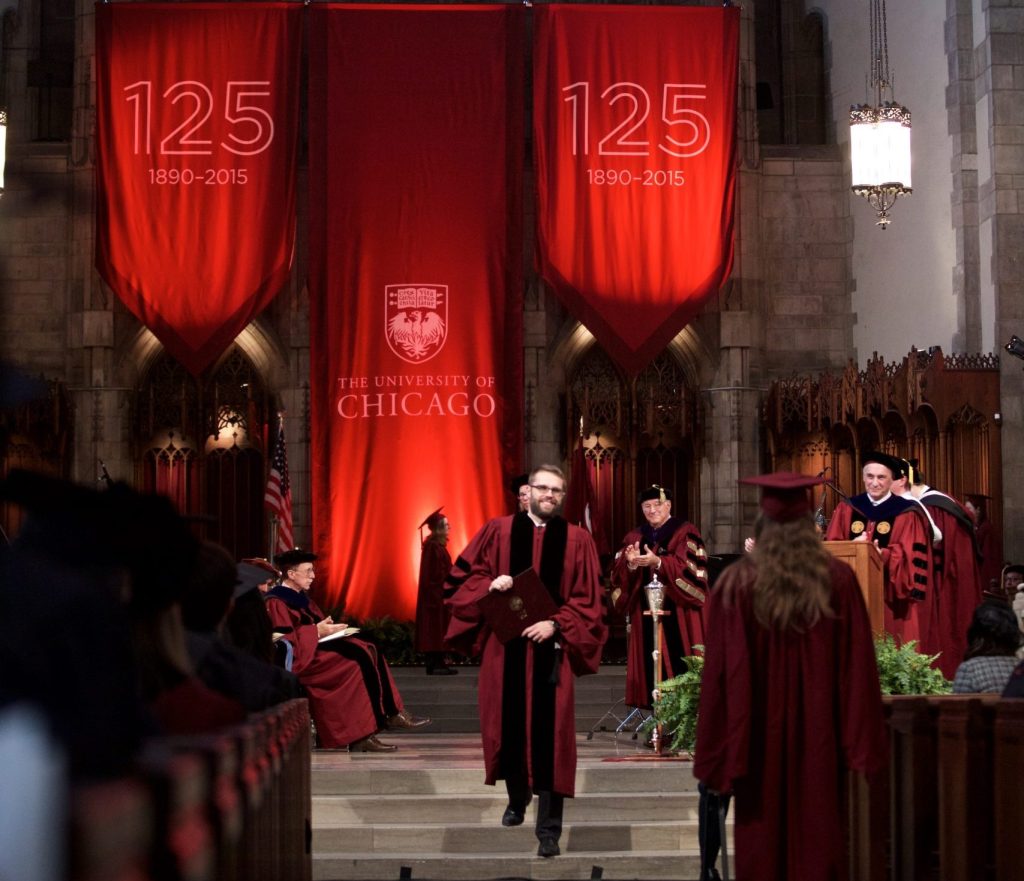Dear friends,
This is the 53rd installment of Stop & Think. To mark this first anniversary, I’m looking back at the most important insight I learned at the University of Chicago. It remains the spirit that guides my thinking as I write and learn with you. As always, thank you for stopping and thinking with me.
The Email
I will never forget receiving that email on February 26, 2010.
It was from the Dean of Students at the University of Chicago Divinity School. Its subject line – “PhD Admissions” – made my heart beat fast. I was sitting on my friend’s tiny porch overlooking the African Union through the morning fog in Addis. The email I was nervously waiting for had finally arrived.
I braced myself as I opened it. Would it say yes or no? So much of my life and passion – past, present, and future – hanged on that one message, or so I felt.
“I am delighted to offer you admission to the Ph.D. program,” Dean Owens wrote.
I could hardly believe my eyes. A wave of relief and gratitude washed over me. A new future had just opened before me, and I was filled with joy.
The Program
UChicago was my dream school. In 2006, I declined a Presidential Fellowship at Harvard to do my M.A. at Chicago, hoping this would position me to get into its extremely competitive PhD program.
I greatly respected Chicago’s faculty and wanted to be formed by its interdisciplinary culture. Scholars there had won more Nobel Prizes than any other university in the world. Chicago was ranked in the global Top 10, and its Divinity School was one of the most respected places for studying religion and ethics.
Declining Harvard paid off, and I was in. Woof!
But actual program was intensely rigorous. My professor Donald Levine called it “sadistic.” Here’s a quick survey.
The first phase required two years of full-time coursework, which built on two years of M.A. coursework. I also co-caught “Religion and the Political Order” with Professor Jean Bethke Elshtain and “Ethiopian Civilization” with Professor Donald Levine. The climax was passing translation examinations in French and German, demonstrating that I could read foundational sources in their original languages.

The second phase required me to spend a year studying for doctoral Qualifying Examinations. These four written exams – on theological ethics, political ethics, philosophical ethics, and political theology – were designed to test whether I had mastered the arguments of dozens of major works from the ancient world to the present. The climax of this sleepless, second phase was an oral examination in which my professors – giants in the fields of ethics, politics, philosophy, history, and sociology – cross-examined my essays and grilled me with more questions on the fly.
The final phase of the PhD was writing a dissertation. For this, I studied every surviving word of Dietrich Bonhoeffer and wrote a 300-page study of an unexplored but vital aspect of his thought: how can we make new beginnings and start over after we have been devastated by something as terrible as

the Holocaust? (After graduating, I revised my dissertation into my first book Bonhoeffer’s New Beginning: Ethics after Devastation, which was pu
blished by Fortress Academic.)
In brief, Bonhoeffer’s answer is that we can’t actually do it. The only way we can start over is by letting God go first and following Jesus into what Bonhoeffer called “a new life in being there for others” – a life of sacrificial love. (You can read more about the book in my interview with the International Bonhoeffer Society.)
I was deeply encouraged when the then President of the American Academy of Religion, Professor David Gushee, called my study “groundbreaking.” The editor of Dietrich Bonhoeffer’s Works in English said that it was the best study on Bonhoeffer in the last ten years. This was a long road, and God, Lily, my professors, and many others sustained me.
I can hardly imagine a more rigorous education: courses, teaching, languages, qualifying exams, and endless research and writing. The University of Chicago invested around $500,000 into my training, and I poured tens of thousands of hours of my life into this program of study.
The Insight
Looking back, what was the most important truth or insight that I learned from my PhD at UChicago? What was my $500,000 takeaway?
It was counter-intuitive, but I can name it in one word: humility.
I learned a paradox at UChicago: the more I learn, the more I discover how little I know and how much more I have to learn. Every topic, every question, and every thinker unearths an ocean of research, a mountain of interpretations, and a jungle of contexts, questions, and possibilities. Seemingly unchallengeable ideas can be dethroned. New discoveries are made. Paradigms shift. Previously ignored or oppressed voices and vantage points uncover new problems and insights. Truth – historical, ethical, and theological – is dynamic and often difficult to discern in its fullness.
My assumptions, opinions, and convictions were put under the microscope throughout my doctoral study. During this process, I discovered how mysterious God is, how vast the world is, and how complex people and our quest for truth are. I had absolutely poured myself into the history of ethics with every ounce of my energy for five years. And yet it would be false to claim that I had “mastered” it. There was and is so much more that I hadn’t read, more that I hadn’t understood, more angles and possibilities that I hadn’t considered, more plausible alternatives and competing points of view that deserved attention. And, of course, there was more life to be lived and decisions to be made, because ethics is ultimately a deeply practical and personal discipline.
With each year, I learned how little I know. Nicolas of Cusa (1401-1464) called this “learned ignorance.” And thus I became more comfortable saying things like “I’m not sure” or “It’s complicated” or “There’s several interpretations that should be taken seriously” or “How do you see it?”
The Transformation
For me, this immersion in humility wasn’t a cause for despair or a disappointing defeat. It also certainly was not a capitulation to relativism, the idea that truth isn’t real or is only whatever we want it to be. Instead, it was a source of radical personal transformation in my character and worldview.
I became convinced that the spirit of true learning is not control, conquest, domination, ownership, and the exaltation of self in unquestionable “expertise.” The spirit of true learning is passionate attention, relentless patience, close listening, courageous honesty, and the formation of chastened conviction that can be shared with others.
And “chastened conviction” is the opposite of blind assumption, dogmatic opinion, or a claim to certainty. Chastened conviction is passionately held belief that has been formed and tested by rigorous study, open dialogue with others, and the earnest facing of life in all of its wonder and agony. This is faith with integrity.
When humility is at the center, the goal of learning is not to become a self-sufficient fortress of knowledge but to cultivate the readiness to learn from anyone anywhere at any time, even in areas where human-made systems tell me I’m an “expert.” In other words, I discovered that true learning is the practice of love and radical hospitality toward God, the world, and people, whoever they are, especially those who are typically ignored or excluded by elite universities.
Humility
The word humility is beautiful. It comes from the Latin word “humus,” which literally means “soil.” In this sense, humility is a deep embrace of our rootedness in the earth, a keen sense of our smallness and active embrace of our being on equal footing with others rather than soaring up above them.
The humble person recognizes and celebrates our togetherness in the limits of our shared humanity, especially our knowledge and power. We are not gods who fly beyond others. As Augustine said in his Confessions, we are “little pieces of creation,” creatures of soil who share in the glory and agony of life’s infinite vastness, complexity, and mystery. Thus, we learn to become more vulnerable, gentle, and honest people who listen and learn with and for others.
This was Socrates’s original insight: “I know that I know nothing” (see Plato’s Apology 29d). In other words, true wisdom recognizes its limits and ignorance, and thus it becomes open to others. This is the reason why Socrates thought that the best way of life and philosophy is practicing endless conversation with other people. It’s going back and forth through question and response in a shared quest for truth.
Paul had a very similar insight.
He said that “we see through a glass darkly” and “know in part” (1 Corinthians 13:12). He challenged those who prided themselves in their wisdom, “You should become ‘fools’ so that you may become wise” (1 Corinthians 3:18). Paul insisted that “knowledge puffs up, while love builds up” (I Corinthians 8:2). Said differently, arrogant claims to knowledge make us inflated and fake, while love for others makes us solid and real.
Thus, Paul called people into a radical mindset of humility like Jesus, of remaining low to the ground and on equal footing with others as servants not masters (Philippians 2:3, 8). Paul himself renounced the credentials that would distinguish him as superior to others. He said that all of this was “garbage” compared to knowing this self-giving Servant (Philippians 3:1-12).
Likewise, Jesus taught that the only ones who can hear God’s surprising word are “little children.” They’re people who are aware of their smallness, vulnerability, and need for others. Like Socrates and Paul, Jesus understood that seeing ourselves as “wise and learned” can make us most vulnerable to self-deception, blindness, and ignorance (Luke 10:21).
My humble $500K takeaway from UChicago aligned with this ancient and enduring wisdom. Our knowledge is so limited, tentative, and suffused with mystery. Humility is the only appropriate posture of our thinking and living as finite, fallible people given the sacred gift of seeking truth together.
Remaining low to the ground and on equal footing with others honors God’s mystery. It recognizes the complexity of the world. And it also opens our ears to others’ voices and invites us into chastened conviction rather than arrogant ideology. Humility is the way to hospitality, peace, and truth – gifts that money cannot buy.
P.S. Dear reader, this is the first essay in the second year of Stop & Think. I want to stop and thank you for reading my work, sending me your thoughts, and seeking to live a more thoughtful, loving life through the conversations we share. I’m deeply grateful to listen and learn with you.




